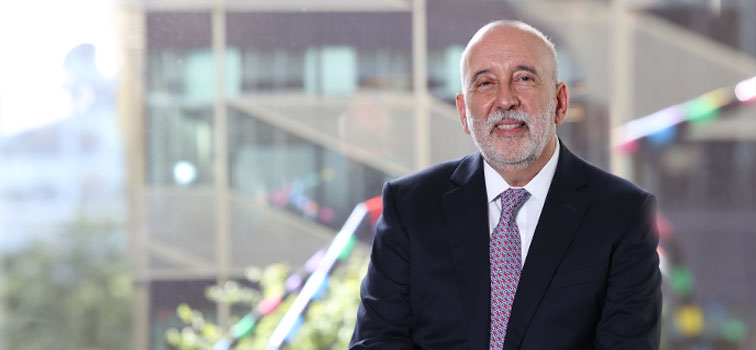Remarks by Governor Makhlouf at the launch of the coin to commemorate the 100th anniversary of George Bernard Shaw winning the Nobel Prize for Literature
17 June 2025
Speech

Good morning everyone. Thank you to the Museum of Literature Ireland for hosting this event. Let me also extend a warm welcome to the Right Honourable the Lord Mayor of Dublin, Councillor Emma Blain and to all our distinguished guests.
We are here today to the launch our coin to commemorate the 100th anniversary of George Bernard Shaw winning the Nobel Prize for Literature. We issue commemorative coins on behalf of the Minister for Finance. Their aim is to recognise figures, or events, of national importance and we are here today to celebrate one of Ireland’s greatest literary geniuses, George Bernard Shaw. Shaw is one of Ireland’s four Nobel Literature winners and, in fact, until 2016, was the only person to have won both a Nobel Prize for Literature and an Academy Award (in 1939). Bob Dylan joined him in that club in 2016.
This coin is a tangible tribute to one of the brilliant minds of the 20th century. He was awarded the Nobel Prize in 1925 “for his work which is marked by both idealism and humanity, its stimulating satire often being infused with a singular poetic beauty”. Fintan O’Toole described him as the “most globally influential Irish person in history”, noting praise from Jawaharlal Nehru, Albert Einstein and Winston Churchill.
Shaw was more than a literary figure. Thomas Mann, a fellow Nobel Laureate four years after Shaw, wrote in his obituary tribute that “when we add the floodtide of essays, commentary, and amplifying criticism, embodying an all-embracing encyclopedic knowledge that draws equally on the natural sciences, theology, religious and general history, and especially on the social-economic sphere, always artistically leavened, full of esthetic charm, and unfailingly entertaining – when we add all this, we find ourselves face to face with a lifework of astonishing scope, apparently the fruit of continued inspiration, unceasing merriness, and of an indefatigable will to work.”
Shaw was also an orator who “with his lyrical Irish accent […] could turn the classical rhetorical tradition into something apparently intimate and conversatonal, without losing its rhythms and vigour” (O’Toole). He was a man of formidable intellect and sharp wit and his works continue to resonate with audiences and scholars around the globe. As Mann also wrote, Shaw “tirelessly wielded the shining sword of his word and wit” against stupidity and “did his best in redressing the fateful imbalance between truth and reality, in lifting mankind to a higher rung of maturity.” As O’Toole says, “the most important aspect of his influence is not what Shaw taught people to think but how he taught them to think.”
In an era of alternative truths and disinformation bubbles, perhaps his work has become more relevant than ever.
Conclusion
Before I conclude, I’d like to thank some of the people who’ve helped to organise this event. Specifically, I want to pay tribute to the Central Bank’s Currency Centre team for the immense work they do each year on the collector coin series and I’d like to acknowledge the ongoing work of the Numismatic Advisory Panel who support the Bank’s programme.
George Bernard Shaw left a significant legacy of theatrical, fictional, polemical, critical and philosophical writing. He wrote that “an Irishman’s heart is nothing but his imagination” and his appreciation and understanding of Ireland had a profound influence on his career. We take great pride in the issuing of commemorative coins and we are delighted in issuing this coin today. Shaw would probably have found the notion of his face on a coin rather strange – and he would have complained that we were commemorating him at all, as he did when awarded the Nobel Prize – but I hope he would also appreciate the enduring recognition it represents.